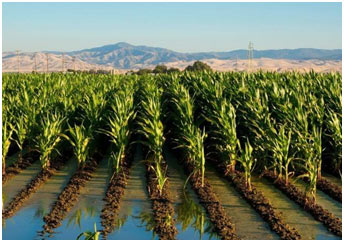Introduction
Genetics studies the role of individual or group genes in determining phenotypes or physical traits. From how we look to appearance, color, height, and lots of other things. Genetics is also involved in health and disease.
By understanding genes and other genetic factors, we can learn about diseases, their controls, improvements to avoid diseases and this can lead to the healthy and purposeful life of organisms.
Similarly, in plants genetics and genetic engineering has played a vital role in the improvement of plant production, resistance against pest and pathogenic diseases, tolerance to extreme environmental conditions, etc.
- The following points will show the fact that how genetics and plant improvements and modifications are connected.
Polyploid Crops
By using genetics, polyploid crops can be produced. These crops have improved yield. At present age, most of the major food crops are polyploid such as wheat. Wheat is hexaploidy. It has increased the yield.
The new varieties of wheat have introduced the concept of the green revolution. The green revolution has dramatically improved grains production. Thus, it reduced hunger and famines on Earth.
Transgenic Plants
Transgenic plants are those plants that have foreign DNA. Many new genes are introduced into different types of plants. This has introduced many useful traits in plants. This has greatly helped in improving the yield and quality of crops.
Hybridization
The crossing of different plant varieties is called hybridization. This is a traditional technique. It is used to produce plants with desirable traits. Vegetative propagation is performed on hybrid plants. It produces a large number of identical plants with desirable traits.
Insects and Herbicides resistant plants
Plants are produced by genetic engineering. These plants are resistant to insect predation or herbicides. For example, soybean, cotton, potato, corn, etc. are genetically engineered. Some corn and cotton plants are both insect and herbicide-resistant.

These plants are environmentally safe. These crops are resistant to a broad-spectrum herbicide. Weeds are not resistant to herbicides. Therefore, weeds are easily controlled by herbicides as herbicides kill the weeds but do not kill the crops.
Salt Tolerant Plants
A genetically engineered plant “Arabidopsis” which is a salt-tolerant plant has been produced. It has the following steps:
- Genetical engineer identified a gene coding for a channel protein. These proteins transport Na+ and H+ across a vacuole membrane. Na+ions are stored in vacuole. Thus, Na+does do interfere with plant metabolism.
- Then these genes were cloned and used in genetically engineered plants. These plants overproduce the channel protein.
- The modified plants grow well in water with excess salts.

Irrigation causes salinization of soil. This reduces crop yields. Today crop production is reduced by 50 % due to salinization. This problem is solved by producing salt-tolerant plants. Production of salt, drought, and cold-tolerant crops can increase agricultural yields.
Increasing Productivity
Genetic engineering is trying to increase productivity. Following steps are taken for this purpose.
- C4 cycle is being introduced to rice. The C4 cycle uses a different method of capturing CO2. So, the C4 cycle reduces the inefficiency of RUBP carboxylase.
- The structure of stomata can be changed. It can increase carbon dioxide intake or cut down water loss.
- It can increase the efficiency of the enzyme RUBP carboxylase. RUBP captures CO2 in most plants.
Improvement in quality of food
Genetic engineering is used to produce crops with improved food quality traits. Such as:
Transgenic soybean is developed. This produces monosaturated fatty acid oleic acid. It is a big change and can improve human health.
Genes were derived from Vernonia and castor bean seeds. These genes were transferred into soybean genome. These altered plants also produce vernolic acid and Ricinoleic acid.
These are derivatives of oleic acid. And are used to harden the paints and plastics.
Production of human products from plants
Single gene transfers have allowed plants to produce various products. Transgenic plants are used to produce human growth hormones, clotting factors, enzymes, and antibodies.

